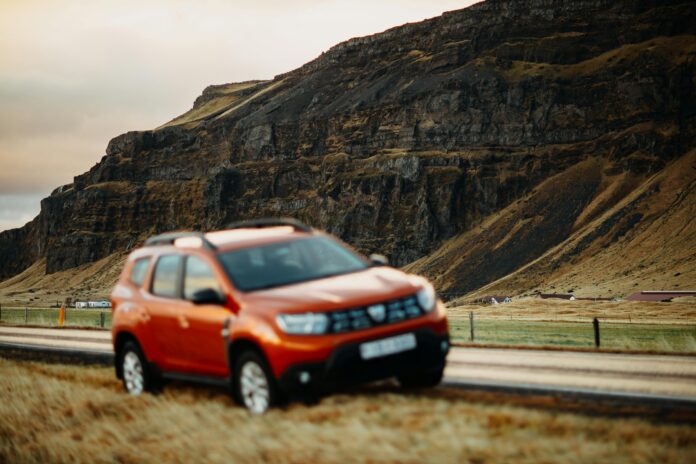Introduction
Choosing the right SUV is crucial for fitting your lifestyle, whether you need it for family adventures, city commuting, or off-road excursions. With the wide variety of options available, selecting the best SUV for lifestyle requirements means evaluating factors like seating capacity, fuel efficiency, and power. To ensure you find the perfect lifestyle SUV, let’s explore the key aspects to consider before making your decision.
Tailored for You: How to Choose the Right SUV for Your Needs

Choosing the right SUV can be a game-changer for your daily routine, long road trips, or weekend adventures. When selecting an SUV, it’s important to consider factors like your driving habits, family size, and the terrain you’ll most frequently encounter. Whether you need a compact model for city driving or a full-size SUV for a growing family, understanding these elements will help you choose the right SUV that perfectly fits your lifestyle.
Determine Your Primary Needs
Family Size and Seating Capacity
If you have a large family, or frequently transport passengers, the seating capacity of your SUV will be a key factor. Many full-size SUVs offer third-row seating, perfect for accommodating up to seven or eight people. For smaller families or solo drivers, compact or midsize SUVs might provide just the right balance of space and efficiency.
Driving Terrain and Conditions
Your driving environment heavily influences the type of SUV you need. If you plan to take your vehicle on off-road adventures, you’ll want an SUV with high ground clearance, 4WD, and rugged suspension. On the other hand, if you’re mostly driving in the city, a compact SUV with good fuel efficiency and smooth handling will serve you better.
Cargo and Storage Requirements
Whether you’re an outdoor enthusiast needing space for camping gear or a parent needing ample room for groceries and strollers, cargo space is crucial. Full-size SUVs often provide vast amounts of cargo space with fold-flat rear seats, while compact models offer enough for everyday errands and small loads.
Towing and Power Requirements
If you plan to tow boats, trailers, or other equipment, focus on SUVs with high towing capacities. Some midsize and full-size SUVs come equipped with powerful engines capable of towing several thousand pounds, making them ideal for outdoor activities and heavy loads.
Fuel Efficiency vs. Power
Balancing fuel efficiency with power is important for many buyers. Hybrid SUVs and electric models offer significant savings on fuel costs while minimizing environmental impact. However, if power and performance are your priorities, especially for towing or off-road use, a traditional gas-powered SUV with a robust engine may be more suitable.
Understanding the Different SUV Types
Compact SUVs
Compact SUVs are perfect for city dwellers who need a nimble vehicle with ample cargo space. These models often offer the best fuel economy in the SUV category and are easier to maneuver in tight urban environments. Popular options like the Honda CR-V and Toyota RAV4 stand out for their exceptional reliability and practicality, making them top choices among SUV buyers.
Midsize SUVs
Midsize SUVs offer a balance between power and comfort. They provide more seating and cargo space than compact SUVs, making them ideal for families or individuals who frequently travel long distances. Vehicles like the Ford Explorer and Toyota Highlander are great examples of midsize SUVs that provide a comfortable ride with advanced features.
Full-Size SUVs
Full-size SUVs are the largest of the category, offering the most seating and cargo capacity. They are ideal for large families, long road trips, and towing heavy loads. Models like the Chevrolet Tahoe or Ford Expedition come equipped with strong engines, ample legroom, and advanced safety features, making them perfect for both adventure and everyday use.
Key Features to Consider
Safety Features
Prioritizing safety is essential when selecting the right SUV for you and your family. Modern SUVs come equipped with a wide range of advanced safety features like automatic emergency braking, lane-keeping assistance, and blind-spot monitoring. These features can significantly reduce the risk of accidents and improve driver confidence on the road.
Comfort and Luxury
For those seeking a more luxurious driving experience, SUVs with premium interiors, advanced climate control, and high-quality infotainment systems are worth considering. Heated seats, panoramic sunroofs, and leather upholstery can add a touch of luxury to your daily commute or road trips.
Infotainment and Connectivity
Connectivity is key in modern vehicles. Look for SUVs that offer seamless integration with smartphones via Apple CarPlay or Android Auto, allowing you to make hands-free calls, use navigation, and listen to music. Many models also feature high-quality sound systems and intuitive touch-screen controls for added convenience.
Fuel Efficiency and Environmental Impact
Hybrid and Electric SUVs
Hybrid and electric SUVs are becoming increasingly popular for their eco-friendliness and long-term cost savings. Hybrid models offer a combination of gasoline and electric power, reducing fuel consumption, while all-electric SUVs provide a zero-emissions driving experience, making them ideal for environmentally conscious drivers.
Fuel Consumption in Gasoline SUVs
If you prefer gasoline-powered SUVs, there are many fuel-efficient models available. Look for SUVs with smaller turbocharged engines or models designed to maximize miles per gallon, ensuring you don’t have to sacrifice too much power for fuel economy.
Budget and Maintenance Costs
Purchase Price and Financing
Your budget will significantly influence which SUV you choose. Compact SUVs are typically more affordable than midsize or full-size models. Additionally, consider whether leasing or buying is the better financial option for your lifestyle.
Long-Term Maintenance and Repair Costs
Reliability and maintenance costs should not be overlooked. Research which SUV brands and models are known for longevity and low-cost repairs. Additionally, consider the availability of warranties and extended service plans that can help minimize long-term expenses.
Conclusion
Choosing the perfect SUV for your lifestyle requires careful consideration of your needs, driving conditions, and budget. Whether you prioritize space, power, fuel efficiency, or luxury, there is an SUV designed to meet your specific requirements. Take the time to research, test drive, and compare models to ensure you make the best choice for your needs.














